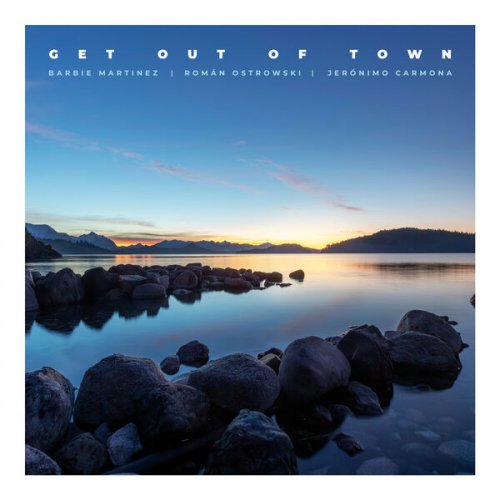Jean-Christophe Maurice, Ensemble Instrumental Provence Verdon - Winterreise - voyage d'hiver (Version pour baryton-basse, quatuor à cordes et clarinette) (2024) [Hi-Res]
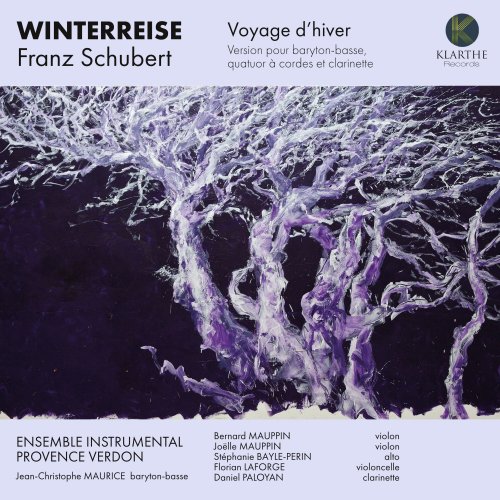
Artist: Jean-Christophe Maurice, Ensemble Instrumental Provence Verdon
Title: Winterreise - voyage d'hiver (Version pour baryton-basse, quatuor à cordes et clarinette)
Year Of Release: 2024
Label: Klarthe Records
Genre: Classical
Quality: flac lossless (tracks) / flac 24bits - 96.0kHz +Booklet
Total Time: 01:11:20
Total Size: 378 mb / 1.25 gb
WebSite: Album Preview
TracklistTitle: Winterreise - voyage d'hiver (Version pour baryton-basse, quatuor à cordes et clarinette)
Year Of Release: 2024
Label: Klarthe Records
Genre: Classical
Quality: flac lossless (tracks) / flac 24bits - 96.0kHz +Booklet
Total Time: 01:11:20
Total Size: 378 mb / 1.25 gb
WebSite: Album Preview
01. Winterreise, D.911: No. 1, Gute Nacht - Bonne nuit (Version pour baryton-basse, quatuor à cordes et clarinette)
02. Winterreise, D.911: No. 2, Die Wetterfahne - La girouette (Version pour baryton-basse, quatuor à cordes et clarinette)
03. Winterreise, D.911: No. 3, Gefror'ne Tränen - Larmes gelées (Version pour baryton-basse, quatuor à cordes et clarinette)
04. Winterreise, D.911: No. 4, Erstarrung - Engourdissement (Version pour baryton-basse, quatuor à cordes et clarinette)
05. Winterreise, D.911: No. 5, Der Lindenbaum - Le tilleul (Version pour baryton-basse, quatuor à cordes et clarinette)
06. Winterreise, D.911: No. 6, Wassertlut - Dégel (Version pour baryton-basse, quatuor à cordes et clarinette)
07. Winterreise, D.911: No. 7, Auf dem Fluße - Sur le fleuve (Version pour baryton-basse, quatuor à cordes et clarinette)
08. Winterreise, D.911: No. 8, Rückblick - Regard en arrière (Version pour baryton-basse, quatuor à cordes et clarinette)
09. Winterreise, D.911: No. 9, Irlicht - Feu follet (Version pour baryton-basse, quatuor à cordes et clarinette)
10. Winterreise, D.911: No. 10, Rast - Pause (Version pour baryton-basse, quatuor à cordes et clarinette)
11. Winterreise, D.911: No. 11, Frühlingstraum - Rêve de printemps (Version pour baryton-basse, quatuor à cordes et clarinette)
12. Winterreise, D.911: No. 12, Einsamkeit - Solitude (Version pour baryton-basse, quatuor à cordes et clarinette)
13. Winterreise, D.911: No. 13, Die Post - Le courrier (Version pour baryton-basse, quatuor à cordes et clarinette)
14. Winterreise, D.911: No. 14, Der greise Kopt - La tête grise (Version pour baryton-basse, quatuor à cordes et clarinette)
15. Winterreise, D.911: No. 15, Die Krähe - La corneille (Version pour baryton-basse, quatuor à cordes et clarinette)
16. Winterreise, D.911: No. 16, Letzte Hottnung - Dernier espoir (Version pour baryton-basse, quatuor à cordes et clarinette)
17. Winterreise, D.911: No. 17, Im Dorfe - Au village (Version pour baryton-basse, quatuor à cordes et clarinette)
18. Winterreise, D.911: No. 18, Der stürmische Morgen - Matinée de tempête (Version pour baryton-basse, quatuor à cordes et clarinette)
19. Winterreise, D.911: No. 19, Täuschung - Illusion (Version pour baryton-basse, quatuor à cordes et clarinette)
20. Winterreise, D.911: No. 20, Der Wegweiser - Le poteau indicateur (Version pour baryton-basse, quatuor à cordes et clarinette)
21. Winterreise, D.911: No. 21, Das Wirtshaus - L'auberge (Version pour baryton-basse, quatuor à cordes et clarinette)
22. Winterreise, D.911: No. 22, Mut - Courage ! (Version pour baryton-basse, quatuor à cordes et clarinette)
23. Winterreise, D.911: No. 23, Die Nebensonnen - Le parhélie (Version pour baryton-basse, quatuor à cordes et clarinette)
24. Winterreise, D.911: No. 24, Der Leiermann - Le joueur de vielle (Version pour baryton-basse, quatuor à cordes et clarinette)
![Jean-Christophe Maurice, Ensemble Instrumental Provence Verdon - Winterreise - voyage d'hiver (Version pour baryton-basse, quatuor à cordes et clarinette) (2024) [Hi-Res]](https://www.dibpic.com/uploads/posts/2024-06/1717736749_kla177back_low.jpg)
SCHUBERT was working on the melodies for Winter Journey from February to October 1827. The musician was coming out of a short period that was not very conducive to creation. He lacked the literary material to stimulate his writing. The discovery of MÜLLER's first twelve poems enthralled him. He discovered the end of the cycle a few months later, thus completing the journey.
Winter Journey is the second cycle of Lieder composed by SCHUBERT on poems by Wilhelm MÜLLER, after the Die schöne Müllerin (The beautiful Miller-Girl) cycle, composed 4 years earlier. It is a continuous narrative in 24 episodes: a man, speaking in the first person, leaves, on a gloomy winter's day, the town where he has lived as a stranger and where he thought he had found love. He wanders aimlessly, living through various unhappy experiences; at the end, he meets an old hurdy-gurdy player, perhaps a figment of his imagination, whose ritornello seems not to belong to the world of the living. The theme of wandering, which is also that of The beautiful Miller-Girl, is a familiar one in German Romantic poetry.
This cycle has often been seen as a harbinger of SCHUBERT's death, as he was to pass away the following year, due to the sinister atmosphere that pervades it. And yet, although the content is depressive, and the musical material chillingly sober and far removed from the melodic and expressive charm of Die schöne Müllerin, during this same period SCHUBERT composed works of an optimistic, even almost cheerful character.
His friend Joseph VON SPAUN recounts: "For a while SCHUBERT was in a gloomy mood and seemed exhausted. When I asked him what was happening, he simply replied, "You will soon learn and understand". One day he said to me "Come to SCHOBER's today, I'll sing you a cycle of sinister Lieder. I'm anxious to hear what you have to say about them. They touched me much more than other Lieder". As we were stunned by the sombre atmosphere of these Lieder, SCHUBERT then said: "These Lieder please me more than all the others, and they will please you too".
As BAUERNFELD, one of his most faithful friends, wrote, "he (SCHUBERT) brought everything to life with tenderness and depth, but he was discreet, preferring not to give away his feelings, but only to contain them".
Psychologically introverted, indifferent to money and honours, it is easier to understand, noting this plus that, that "Lieder like the Winter Journey, a true musical confession, were baptised in the blood of true and profound suffering". (BAUERNFELD)
The dedication alone of the trio in E flat - written after the Winter Journey - gives an idea of the emotional climate of icy irony and disillusioned pride that marked the last days of a man of genius, alone, always alone in the face of crass and massive ignorance:"To no one, except those who take pleasure in it...". Franz SCHUBERT
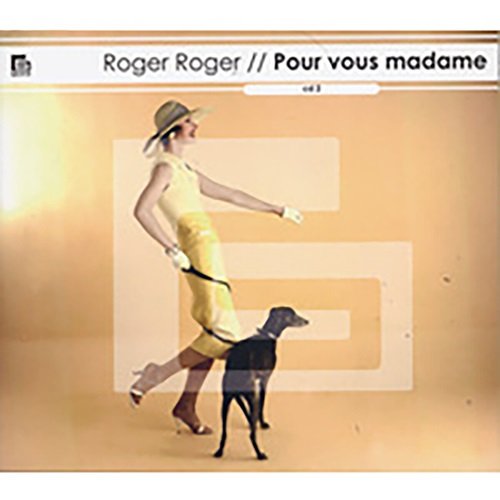
![Tom Cohen - Embraceable Brazil (2025) [Hi-Res] Tom Cohen - Embraceable Brazil (2025) [Hi-Res]](https://img.israbox.com/img/2025-12/18/vgt0kbsml69jbixcu67jkruae.jpg)
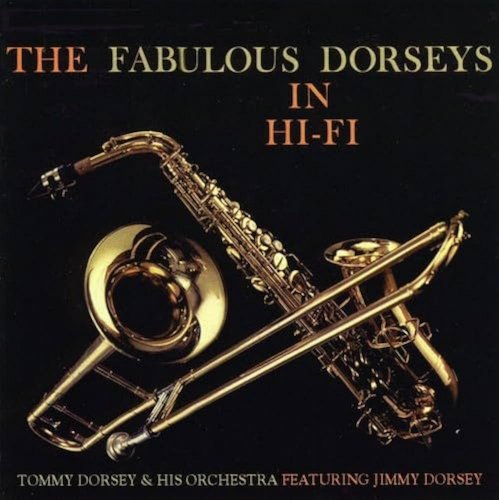
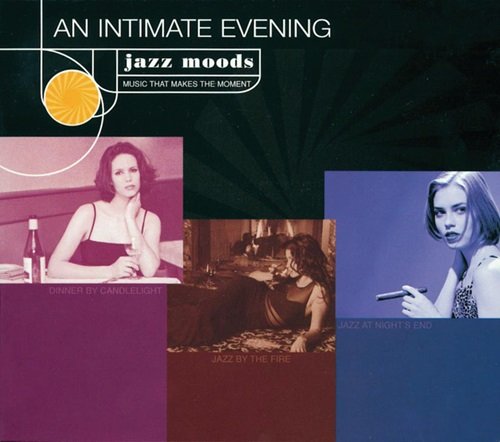
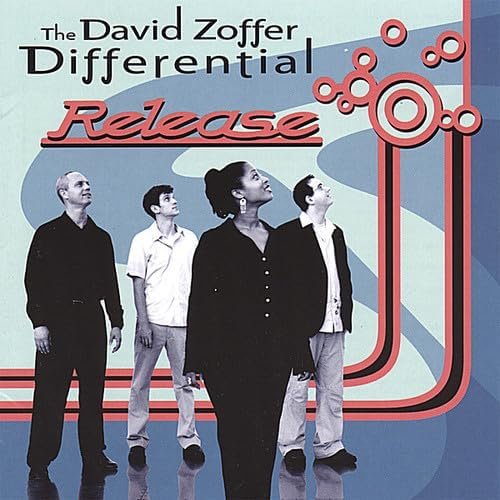


![The Baroque Jazz Ensemble - The Baroque Jazz Ensemble (feat. Ira Schulman) (2025) [Hi-Res] The Baroque Jazz Ensemble - The Baroque Jazz Ensemble (feat. Ira Schulman) (2025) [Hi-Res]](https://img.israbox.com/img/2025-12/19/yehoqbmzkuwk180c26lz85clx.jpg)
